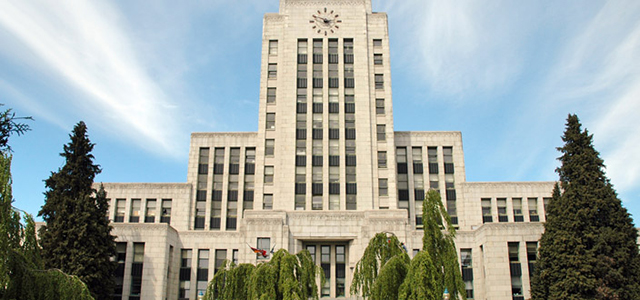
 City marks Emancipation Day and encourages residents to fight against anti-Black racism and discrimination
City marks Emancipation Day and encourages residents to fight against anti-Black racism and discrimination
This Emancipation Day, we are calling on all residents to honour, celebrate, and give thanks to the Black and African Diasporic communities for their achievements, investments, and contributions to Vancouver, and to take action to eliminate anti-Black racism.
To mark this day, Acting Mayor Mike Klassen issued a proclamation today on behalf of the City declaring August 1, 2023, Emancipation Day in Vancouver.
“The City is committed to addressing the historic and ongoing discrimination against the Black and African Diaspora,” said Mayor Ken Sim. “Racism in any form is not tolerated in Vancouver. It is incredibly important for each individual to take a stand to fight anti-Black racism in all its forms and to work towards a more humane and just future for all.”
The City acknowledge the impacts of anti-Black racism, along with the intersections of ancestry, place of origin, religion, marital status, family status, physical and/or mental disability, sex, sexual orientation, gender identity or expression, age, and class of persons. Canada’s current systems were built on and grew from historic colonial foundations of anti-Black racism and ongoing policies and practices continue to negatively impact Black communities today.
The City is committed to addressing the historic and ongoing discrimination against the Black and African Diaspora communities. In September 2022, Council received an Interim Report from City staff on addressing anti-Black racism and historic discrimination. Within this, the Black community identified 4 priorities, including:
- Economic wellbeing and prosperity
- Addressing systemic anti-Black racism
- Improving City’s impact on Black communities
- Creating culturally relevant and safe planning processes
In 2023, Council approved ongoing funding to support this work.
History and significance of Emancipation Day
For more than 400 years, millions of African people were victims of the transatlantic slave trade, where they underwent legally enforced enslavement. They were denied their basic human rights and were considered property that could be bought and sold. The buying and selling of Black Africans was practiced in North America, including here in Canada, Europe, and the Caribbean for two centuries starting in the early 1600s. Some Indigenous people including Inuit, Metis, and First Nations were enslaved in Canada alongside People of African descent.
The passage of the Slavery Abolition Act took effect on August 1, 1834, ending slavery for many Africans and Indigenous people throughout the British Empire, including Canada. While this change encouraged hope for people of African descent who could now live without fear of enslavement, full emancipation of enslaved Africans did not take effect until four years later. This is because all enslaved Africans over six years old were required to work without pay for four years to repay losses to their slave owners.
Canadians are only able to mark Emancipation Day because of the efforts of many enslaved Africans and their Abolitionist allies who fought tirelessly, some to their deaths, for freedom from this unjust system that regarded them as sub-humans.
For Black and African Canadians, Emancipation Day is a day of celebration, and remembrance. It also stands as a reminder of the challenges that Peoples of African descent have overcome in the last 200 years, and is a solemn recognition of the work that still needs to be done to dismantle systems and structures of anti-Black racism in our country.
Federal recognition
In March 2021, the federal government voted unanimously to officially recognize August 1 as Emancipation Day External website, opens in new tab across Canada. This acknowledgment was a step towards recognizing the heritage of people of African descent in Canada and the many contributions they have made and continue to make across these lands. This action reflects the efforts of members of the Black and African Diaspora communities across Canada, including Vancouver, who work tirelessly to advance social, political, economic, and cultural development in their communities.
Anti-Black racism resources
The City asks all residents to reflect, educate, and engage in the ongoing fight against anti-Black racism and discrimination, and colonization. Below is a list of resources to support people living and working in Vancouver in this work:
- Learn about the story of slavery in Canadian history External website, opens in new tab from the Canadian Museum for Human Rights.
- Explore topics like the transatlantic slave track, Black and Indigenous enslavement in Canada, abolition, and more with the Enslaved reading list from CBC External website, opens in new tab.
- Educate yourself on the important contributions made by people of African descent to our societies and how to promote their full inclusion and to combat racism, racial discrimination, xenophobia, and related intolerance through the United Nation’s International Decade for People of African Descent (2015-2024) External website, opens in new tab.
- Read about the current measures taken to prevent racism, racial discrimination, xenophobia, Afrophobia, and related intolerance faced by people of African descent in Canada in the Report of the Working Group of Experts on People of African Descent.
- Read about the City's work on Anti-Black Racism Cultural Redress in the City’s “Addressing Anti-Black Racism and Historic Discrimination Interim Report PDF file (377 KB)” which was approved on September 27, 2022 by City Council.
- Stay up-to-date on our work to address anti-Black racism, with quarterly email updates by joining the Anti-Racism and Cultural Redress mailing list.
- Engage with our interactive photomap, Give Them Their Flowers External website, opens in new tab, which centres the experiences, hopes, and wishes of 10 Black residents who have made impactful contributions to life in Vancouver.
- Download our bystander intervention guide PDF file (643 KB), so you can do your part to protect your friends, neighbours, and community members when you witness discrimination, harassment, or acts of hate.